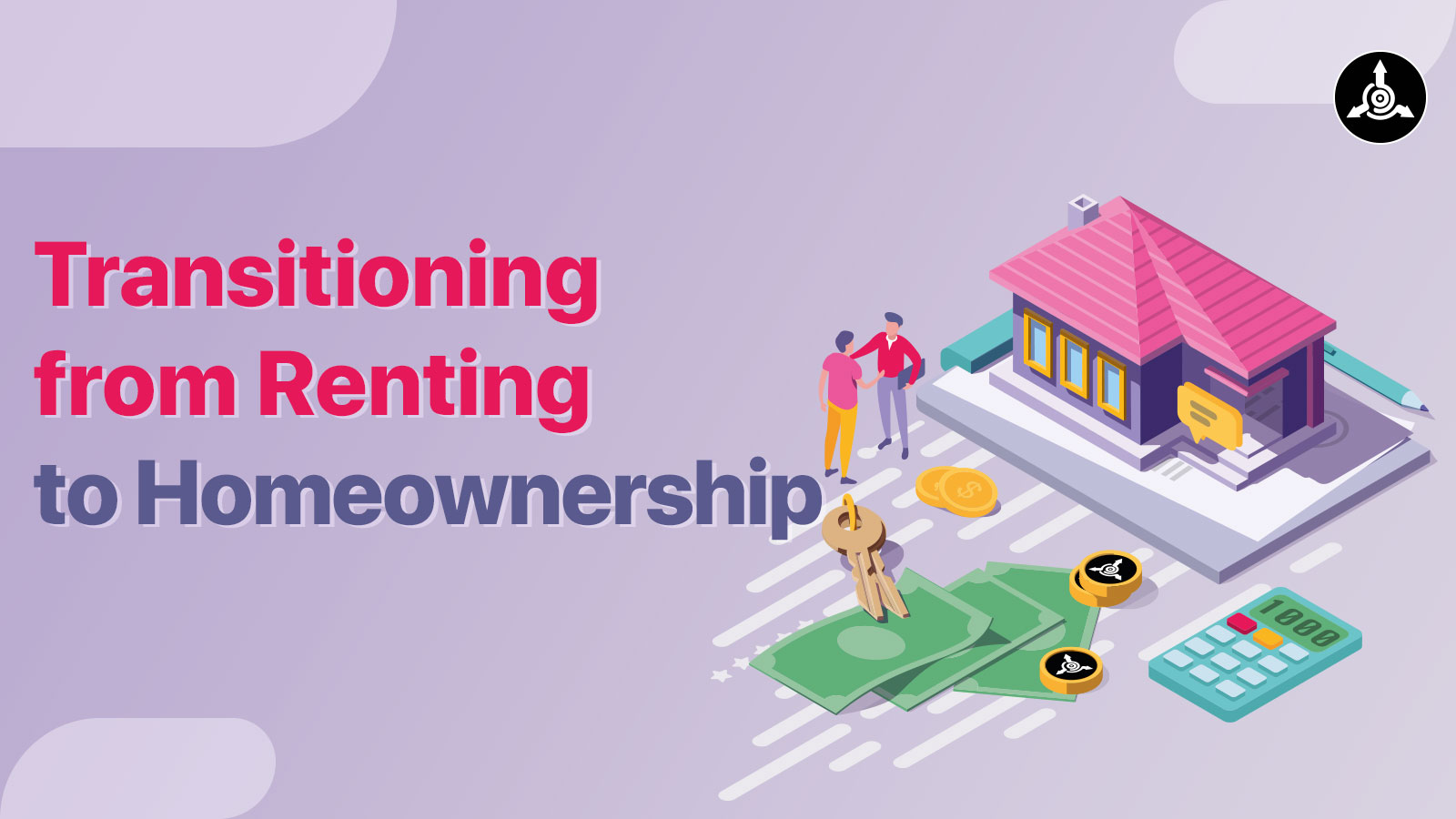Homeownership is a cornerstone of almost everyone's dream. It offers a sense of freedom, independence, stability, and, most importantly, accomplishment. It also provides you with different financial benefits compared to renting.
This article aims to help tenants transition from renting to owning. It will introduce strategies to make the process more seamless and financially favourable. We will also dive into the current real estate market to offer you information that will facilitate decision-making when the time comes for you to become a property owner.

One of the main differences between renting and owning a property is the financial implications. Being a tenant typically involves paying a monthly fee to the landlord. Homeownership, however, requires mortgage payments, taxes, insurance, maintenance expenses, and other related costs.
At first sight, it may seem that owning real estate is the more expensive option. But in the long run, it's by far more reasonable and advantageous.
When you own a house or flat, you have the possibility to amass equity, which can be regarded as an investment toward your future. It means that while you're making mortgage payments or spending money on upkeep, the value of your property appreciates. Essentially, you're pouring funds into an asset you can potentially sell or rent out in the future.
Renting, conversely, doesn't provide the same financial benefits. While it offers tenants the ability to move more easily, it also takes away the opportunity to build equity, as the money spent on rent is used to pay the landlord's mortgage and other ownership-related expenses.
It's paramount to assess your financial health and evaluate your readiness to assume the responsibilities of being a real estate owner.
In today's fast-paced market, understanding interest rates, trends, and the overall landscape of renting and homeownership is pivotal. New schemes, grants, and incentives are introduced frequently by realtors, banks, and developers, making it an opportune time for you to consider passing from renting to owning. Here are some of the more popular contemporary methods to purchase a property:
Buying a house or flat isn't a simple decision. It requires careful forethought to avert unwanted and costly complications. Here are some tricks we use to make things easier for you when acquiring properties.
Once you've determined your budget, favoured type of property, and readiness to become an owner, it's important to get acquainted with the home buyer process. Familiarising yourself with the procedure will allow you to navigate the different complex steps confidently and with as little stress as possible.
Most first-time home buyers prefer to work with a real estate agent who knows the ins and outs of the market and industry. Realtors are here to guide you through the process. They'll find suitable properties, handle the paperwork, and negotiate offers. Having an experienced and dependable agent in your corner will streamline the purchase and ensure you make a quality decision for your benefit.
Buying a house or flat is a massive milestone in anybody's life. It offers a broad range of advantages, like:
Transitioning from renting to owning can be a complicated journey, but it's rewarding. With the different strategies available nowadays and proper planning, you can easily finance the purchase of your dream house or flat.